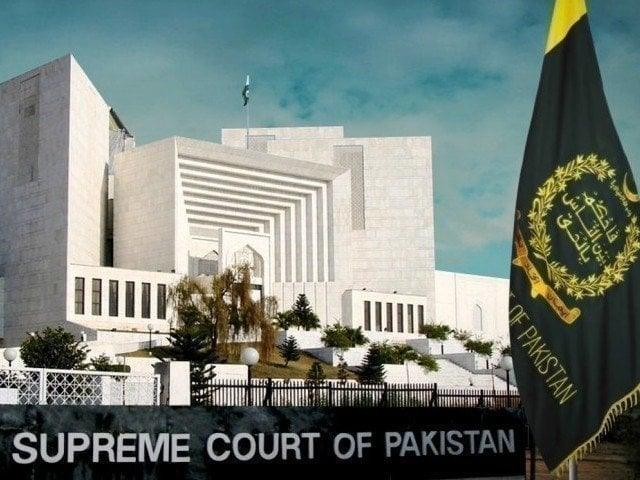ISLAMABAD:
The Constitutional Chamber of the Supreme Court on Thursday raised doubts about the decision of the relevant authorities to divide the cases of the May 9, 2023 riots between military courts and anti-terrorism courts (ATC).
During the hearing of the intra-judicial appeal on the military trial of civilians, Defense Ministry lawyer Khawaja Haris argued that the high court ruling meant that even enemies like Indian spy Kulbhushan Jadhav could not be tried in military courts.
The seven-member Constitution Bench, headed by Justice Aminuddin Khan, continued hearing the appeal. During the proceedings, Khawaja Haris presented his arguments, while the judges raised several questions, including a reference to Indian spy Kulbhushan Jadhav.
The appeal before the court arose from the verdict of a five-member bench of the high court on October 23, 2023, which admitted the petitions against the trial of the civilians involved in the May 9, 2023 riots and declared their military trial a mistrial. .
During the arguments of Khawaja Haris, Justice Muhammad Ali Mazhar asked the lawyer that since the Supreme Court had declared cause (d) of sub-section (1) of section (2) of the Army Act invalid, then it could spy like Kulbhushan Jadhav. be tried in military courts.
Expanding on the overall impact of the Supreme Court ruling, Khawaja Haris responded that after the ruling, not even the spy could be tried in military courts. On this, Judge Jamal Khan Mandokhail highlighted the need to strengthen the prosecution service.
“Why don’t we strengthen our prosecution system? Why don’t we strengthen the anti-terrorism courts?” asked Justice Mandokhail. He added that the courts had made decisions only after examining the evidence; Therefore, it was necessary to strengthen the prosecutor’s office.
Justice Mandokhail and other members of the court, including Justice Naeem Akhtar Afghan and Justice
Musarrat Hilali, asked the lawyer about the criteria and authority to decide which case would go to which court.
The Afghan judge said 103 defendants in 9 May cases were tried in military courts, while the remaining cases were tried in ATCs. Ask how that distinction is made.
The Afghan judge also asked Khawaja Haris about any decision by the ATC to hand over the accused to military custody. “Which cases will go to military courts and which will not, how is this distinction made,” Judge Hilali asked.
Haris argued that the Supreme Court, in its decision, had rendered Article 233, relating to the state of emergency, ineffective. He stated that while Article 233 had no bearing on the military courts case, it was invoked to demonstrate the proper interpretation of Article 8(5).
Explaining Article 233, Haris noted that it gives the president the authority to suspend fundamental rights during a state of emergency. Responding, Justice Mazhar noted that Supreme Court rulings on fundamental rights issues make it clear that courts can exercise their authority even during an emergency.
Justice Aminuddin Khan said that during the emergency, fundamental rights could be upheld in court, but their implementation was suspended. Justice Hilali noted that in the present case fundamental rights were not suspended when the accused were taken into military custody.
Haris said the Supreme Court’s decision said stopping the execution was tantamount to suspending fundamental rights. Judge Hassan Azhar Rizvi said there had been attacks on military installations in the past. He asked where all these cases were tried.
Justice Mandokhail observed that all courts, including the military court, must be respected, but that military courts must be established within the framework of the Constitution, adding that the Supreme Court had determined that no court could be established that would come within conflict with the Constitution.
During the hearing, the Additional Solicitor General of Punjab submitted a report on the allegations of isolation of the convicts on May 9. Justice Aminuddin Khan said the court could not pass any order on the convicts. The hearing of the case was adjourned until Friday (today).




